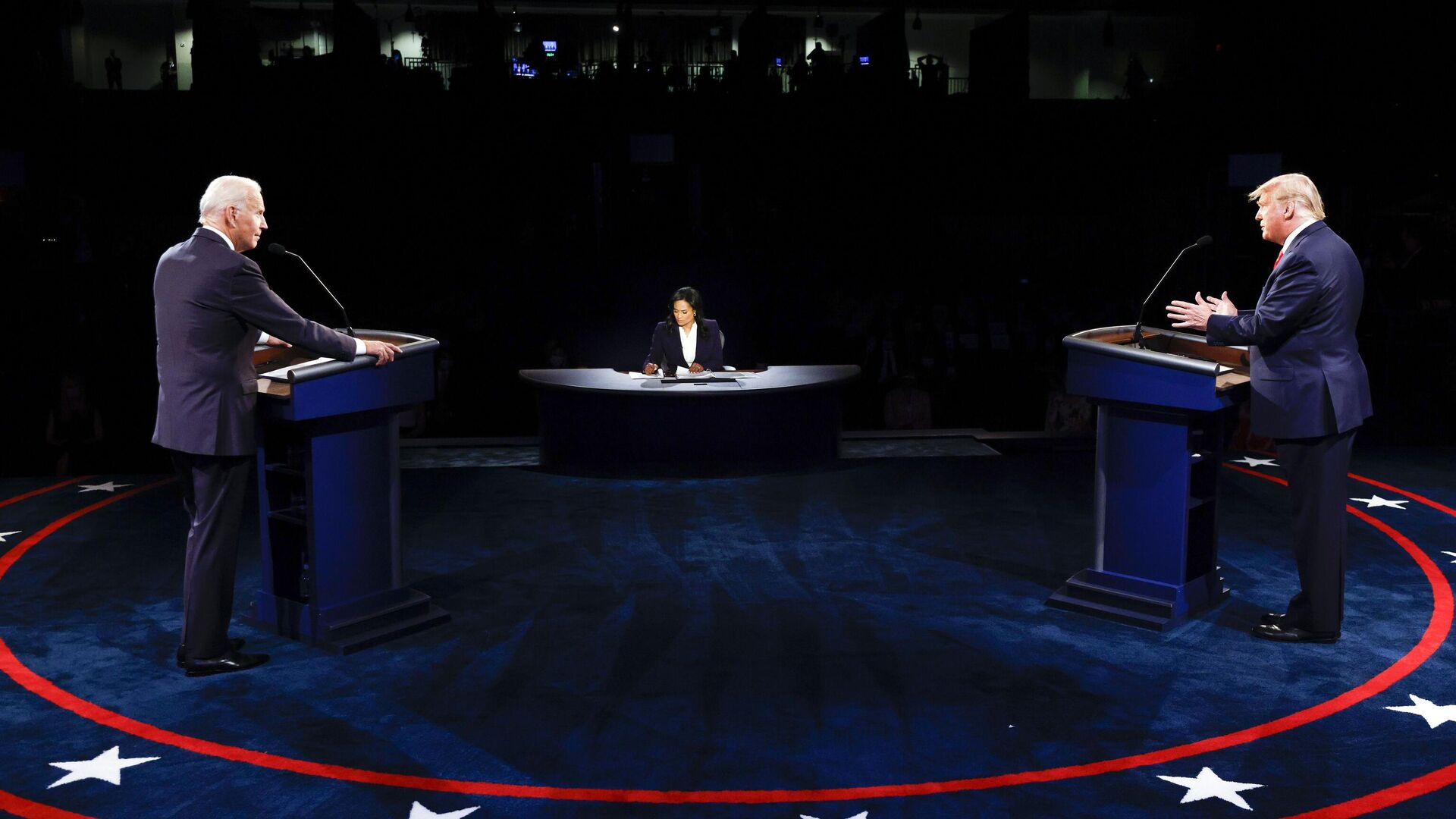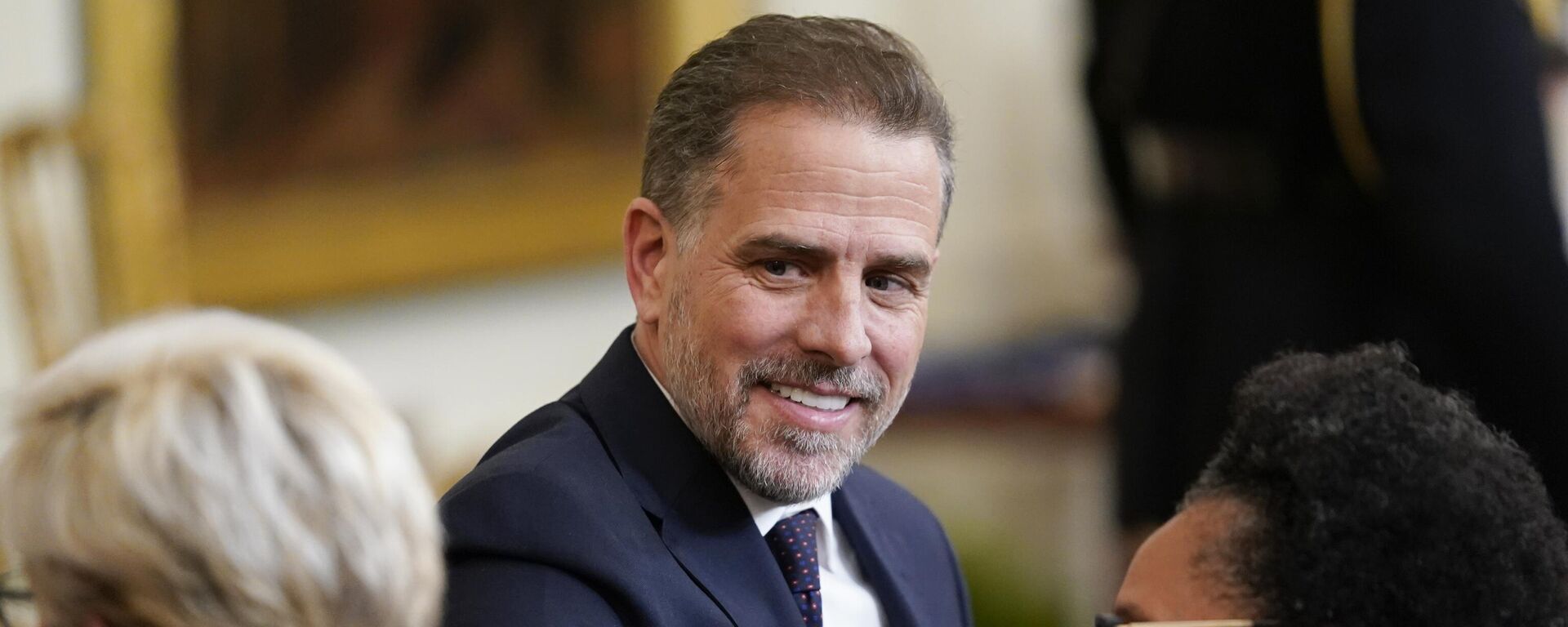Anticipating the Unpredictable in the First Biden-Trump Showdown of 2024
10:24 16.06.2024 (Updated: 12:49 17.06.2024)

© AP Photo / Jim Bourg
Subscribe
The US presidential candidates' campaigns engaged in a protracted game of tit-for-tat over the debates. It was decided that news organizations, not the Commission on Presidential Debates, would host the events after the parties ultimately settled on two dates in June and September.
White House incumbent Joe Biden and ex-POTUS Donald Trump are scheduled to have their first in-person debate of the 2024 presidential campaign on June 27.
The showdown will be one of two that have been agreed upon, with the next one slated for September 10.
Here’s what to know about the first Biden-Trump face-off:
The June 27 live debate will be hosted by Jake Tapper and Dana Bash at CNN’s studio in Atlanta; the September event will be broadcast by ABC.
Unlike previous election debates, there won’t be a live audience present, ostensibly to avoid disruptions. Reports claim the request for an empty TV studio came from the Biden team.
Trump and Biden will stand at lecterns on stage, with their positions determined by a coin flip. All they can take with them is a pen, a notepad, and a bottle of water.
Don’t expect any opening statements from the candidates – only a two-minute closing statement from each one.
After being asked a question, each candidate will have two minutes to reply. One-minute rebuttals and responses to the rebuttals will follow. Another minute can be used at the discretion of the moderators.
Red lights will flash to remind the candidates that they have five seconds left to respond. When the time has run out, the lights will turn solid red.
The candidates’ microphones will be muted during the debate, except for when it is their turn to speak. The mikes can be cut off if they speak out of turn.
In a new feature, two commercial breaks from corporate sponsors will be injected into the 90 minutes of debate time. Campaign staff will not be allowed to interact with their candidates during the breaks.
Independent candidate Robert F. Kennedy Jr. could reportedly be invited to the debate. For this, he would need to garner at least 15 percent support in four national polls meeting CNN and ABC News’ respective standards and “appear on a sufficient number of state ballots to reach the 270 electoral vote threshold to win the presidency,” according to rules published by CNN.
Biden’s campaign has stated that he will only debate Trump one-on-one.
The debates will be hosted by news organizations instead of the Commission on Presidential Debates. The Republican National Committee withdrew its participation from the latter in 2022 amid claims of biased moderators and late timing in the election calendar. Biden's campaign similarly opted not to participate in the commission’s 2024 debates.
It should be noted that the Biden-Trump showdown in June will be the earliest in US history, as presidential debates have previously always started in September or early October.
When President Joe Biden accepted an invitation from CNN to debate, he went on the X social media platform to post:
“I’ve received and accepted an invitation from @CNN for a debate on June 27th. Over to you, Donald. As you said: anywhere, any time, any place.”
Trump responded with, "The answer is yes, I will accept.”
Currently, Trump leads Biden by two points in a recent Reuters/Ipsos survey. The ex-POTUS would beat Biden by 41% to 39% if the election were held today, the poll indicated. An Economist/YouGov survey also showed Trump with a two-point lead.
Results of a CBS/YouGov poll released on Sunday found that a majority (55%) of likely voters ruled out Trump’s conviction playing a role in their voting decision.

